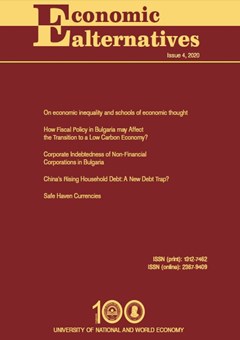Key Determinants of Job Creation: A Comparative analysis between OECD Countries and Emerging Economies
Author: Samuel Ajayi-Obe
Abstract
This study explores the key macroeconomic determinants of job creation in Organisation for Economic Co-operation and Development (“OECD”) countries and Emerging economies. A panel dataset consisting of 56 countries between 1980 and 2014 was used to examine the impact of the explanatory variables on job creation. In light of the rapid increase in globalisation-induced factors over recent decades, contrary to popular belief, technology was evidenced to substitute labour in emerging economies but was insignificant for OECD countries. Productivity was significant and positive for just the OECD countries. However, the study is unable to provide sufficient evidence of Foreign Direct Investment (FDI) or inflation being significant determinants of job creation. The practical implications of the results are that it dismisses theories suggesting productivity results with job losses. The study also provides further evidence supporting several research by observing the detrimental effects of minimum wage policies on employment. Furthermore, economic growth remains a significant determinant of job creation.

